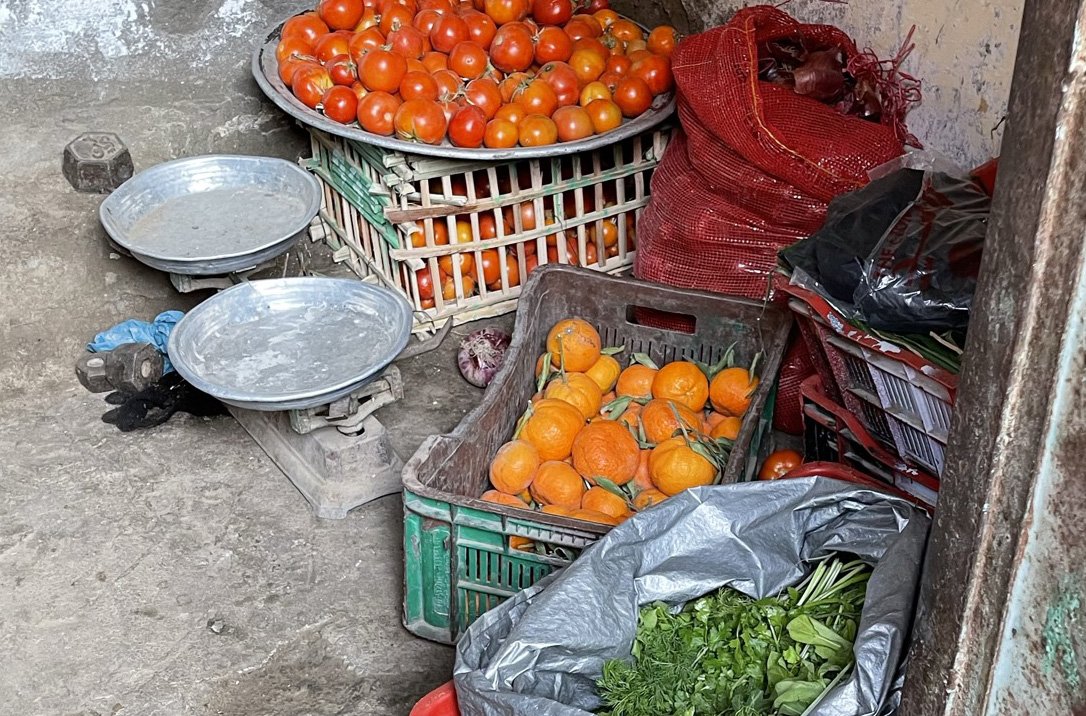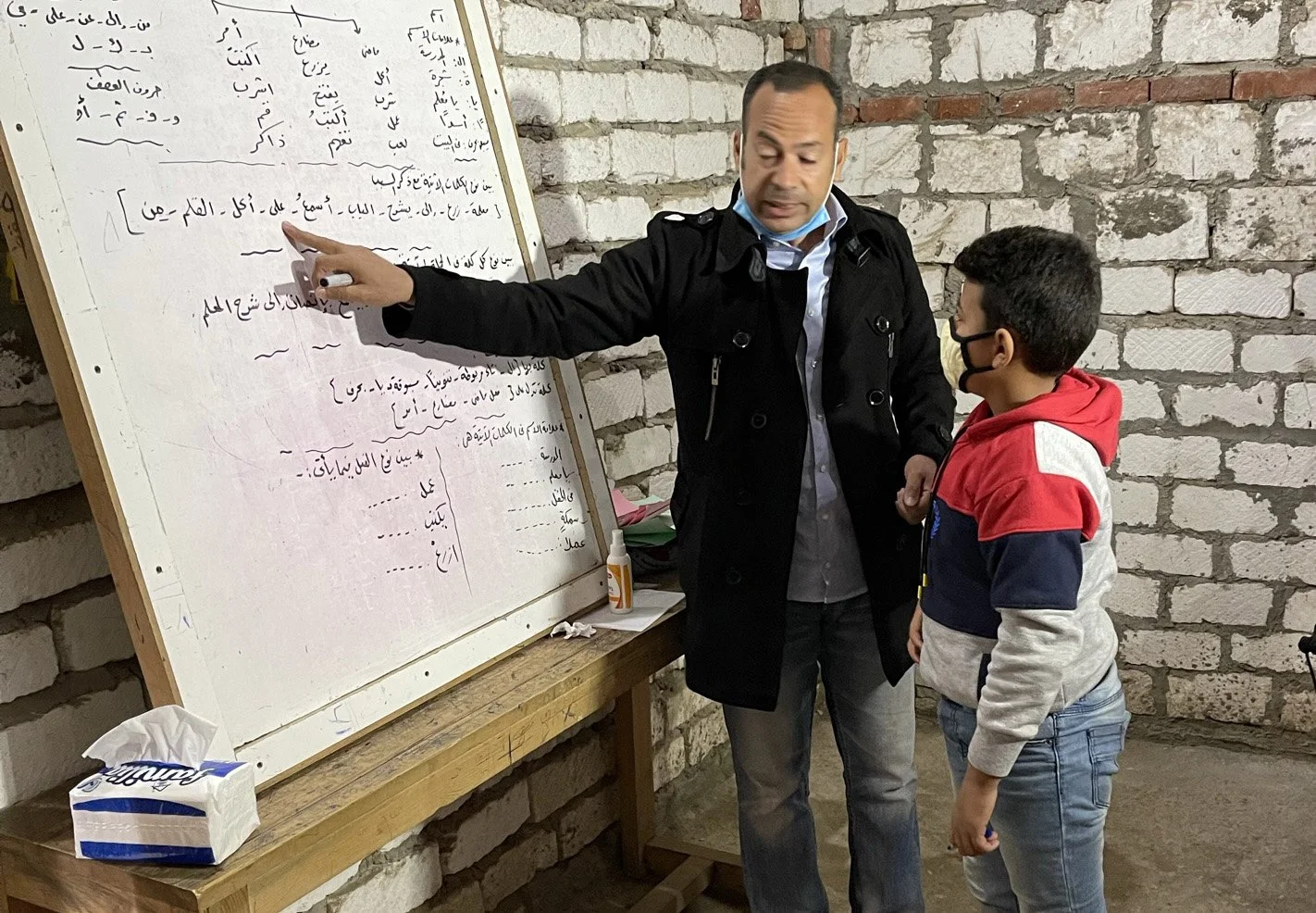In Pictures: Visiting Boshera Village, Egypt
June 2022
Boshera Village, Egypt
After the travel restrictions of Covid-19, it’s been a joy to be able to travel once again to meet up with our partners across the region and see the transformational work they are doing. Our Programmes and Partnerships Manger Kat Brealey recently visited Boshera Village in Egypt, where we’ve been supporting a community development project run by our partner BLESS. Here she reflects on what it was like seeing with her own eyes the positive difference we are making.
Egypt is a complex place. There is currently huge investment in infrastructure, with many new roads and bridges being constructed. The streets are lined with billboards advertising new luxury apartments which are being built on the fringes of Cairo, and in the new administrative capital city commissioned by the President. There are impressive presidential initiatives to combat poverty and address various health conditions and social issues on a large scale. Yet for many people, especially those on the margins of society, life is very tough. Our partners continue to serve those who otherwise would not receive the services they need – from healthcare, to education, to routes to generating income to support themselves and their families.
Nowhere was this more evident than on my visit to Boshera Village in Beni Suef governorate – three hours south of Cairo. The village is made up of around 1,000 households and is one of the places where our partner BLESS runs their Integrated Community Development Project (ICDP).
One of the streets of Boshera Village
The ICDP takes a holistic approach, to address a range of different needs within Egyptian communities. It takes place in many villages, mostly in Upper Egypt where poverty rates are high. In each location, BLESS begin by carrying out a study to identify the challenges which are preventing people from living full and healthy lives. Based on their findings, they then choose relevant activities from a wide-ranging ‘menu’, to creates a bespoke programme, tailored to meet the village’s particular needs.
However, it’s important to say that BLESS don’t simply do this work for people, coming into communities and ‘fixing’ them then leaving. Instead, they establish village committees, so that members of the community are involved in what is happening and take ownership of it. This makes it sustainable for the long term. In Boshera, the project has been active for four years, and this will be the final year before the BLESS team exit. That won’t be the end though – the village committee will continue the work themselves, using the skills and confidence they have developed while working alongside BLESS.
The community centre, Boshera Village
I visited a community centre where I had the chance to meet the committee; within the group, there were people who had responsibility for different aspects of the village’s development. Each of them was passionate about their particular area, and keen to tell me about the difference that ICDP was making.
A volunteer from the environmental component outlined how, with support from BLESS, they had installed streetlights, making the area safer at night. Activities to raise awareness about caring for the environment also meant people were now disposing of their rubbish correctly. The group working on women’s empowerment explained that since BLESS arrived in the village, both FGM and domestic violence had decreased significantly, thanks to door-to-door campaigns tackling these issues. A farmer told me how a BLESS workshop with an agricultural specialist had introduced him to new methods, resulting in the yield from his fields more than doubling, while a seminar about livestock health means he can treat their minor ailments himself.
Meeting the village nursery manager (right) along with colleagues from BLESS
These are just some of the stories I heard – so much positive change had taken place in the village that the discussions continued until it was time for lunch. It happened to be one of many days designated for fasting in the Coptic Christian calendar. Fasting in the Coptic Church doesn’t mean abstaining from food altogether, but rather eating a vegan diet – avoiding meat and dairy products. Among the delights on offer was tameyya – Egyptian falafel made from fava beans. This wasn’t just any tameyya – it had been made by a woman who had received a loan from BLESS to start her own small business producing food.
Loans are a key part of ICDP, enabling community members to set up microenterprises which generate income to support their families. After lunch I walked around the village, visiting some more people who had received small business loans from BLESS. One woman had started a vegetable shop, and said this had allowed her to provide for herself and her children following her divorce. Another woman had found great success selling chickens, while a man had opened a corner shop. The village committee explained that before ICDP, they had to travel to another village to buy things they needed – but now people were coming to Boshera to do their shopping!
Village vegetable shop, begun with the help of BLESS
Education is another central aspect of ICDP in many villages, and Boshera is no exception. I visited Boshera Nursery, where it was great to see young children getting a positive start in life. The staff use the Montessori approach, like most of the nurseries Embrace supports in Egypt. Children are encouraged to follow their interests and learn through play, choosing activities from a range available on child-height shelves around the room. Nearby, older children were attending a supplementary school. This provides additional lessons, as generally formal education is not sufficient. Classes in Egyptian schools tend to be large, meaning teachers are not able to engage with individual students. In contrast, here it was encouraging to see the teachers asking questions, and inviting students up to the board to interact in the lesson.
Supplementary education classes at Boshera Village
All too soon, it was time to begin our journey back to Cairo as the sun started to set. As we drove away from the village, I reflected on the clear difference BLESS have made through ICDP in Boshera Village. As well as practical changes which will have a lasting impact on the lives of the residents, there have also been more subtle changes. People have grown in confidence and been empowered to improve their lives and learned how to work together to make their community a place where they are proud to live.
Across all our partners’ work in Egypt, this is a key theme – creating spaces where change can happen. At other points during my trip I saw how partners are creating space for children with disabilities to receive an education which celebrates who they are, and space for their parents to leave behind the stigma often associated with disability. I also visited spaces partners have created where women can talk about the societal attitudes that hold them back and develop strategies to challenge and change these. In Boshera, ICDP created space for a community to develop a vision of a better village, and the skills and confidence to implement it. And a similar process is taking place in villages all over Egypt, through the work of BLESS. What a privilege it is for Embrace to play a part.








